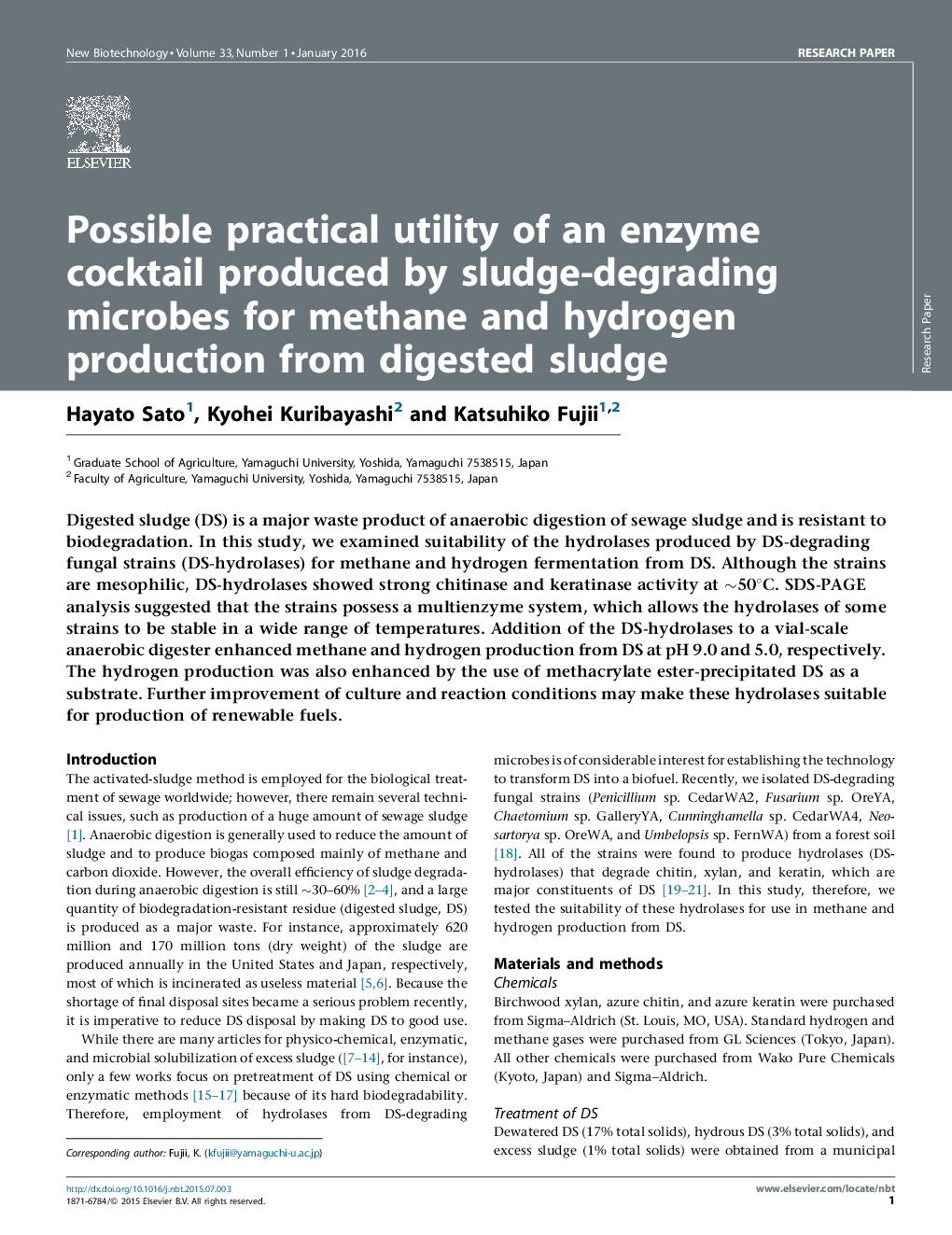| Article ID | Journal | Published Year | Pages | File Type |
|---|---|---|---|---|
| 33030 | New Biotechnology | 2016 | 6 Pages |
•Optimal temperature for most DS-hydrolases was ∼50°C.•DS-hydrolases enhanced CH4 and H2 production from acid-treated DS.•Methacrylate ester (MAE) can be used as a flocculant for DS.•DS-hydrolases also enhanced H2 production from MAE-precipitated DS.
Digested sludge (DS) is a major waste product of anaerobic digestion of sewage sludge and is resistant to biodegradation. In this study, we examined suitability of the hydrolases produced by DS-degrading fungal strains (DS-hydrolases) for methane and hydrogen fermentation from DS. Although the strains are mesophilic, DS-hydrolases showed strong chitinase and keratinase activity at ∼50°C. SDS-PAGE analysis suggested that the strains possess a multienzyme system, which allows the hydrolases of some strains to be stable in a wide range of temperatures. Addition of the DS-hydrolases to a vial-scale anaerobic digester enhanced methane and hydrogen production from DS at pH 9.0 and 5.0, respectively. The hydrogen production was also enhanced by the use of methacrylate ester-precipitated DS as a substrate. Further improvement of culture and reaction conditions may make these hydrolases suitable for production of renewable fuels.
